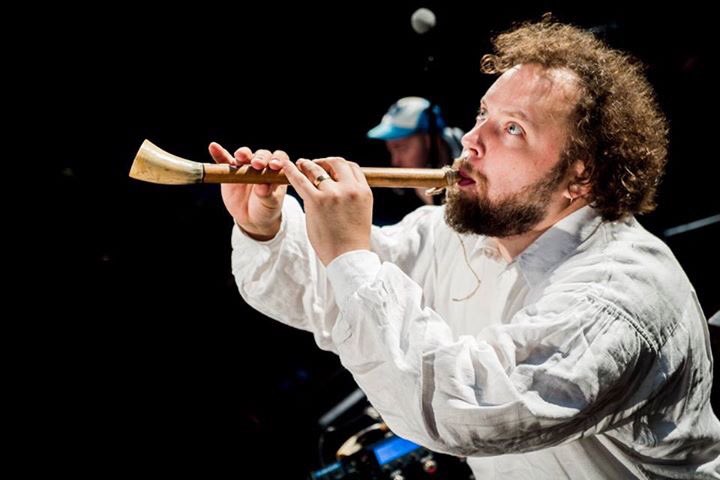Lietava is a celebration of traditional Lithuanian folk instruments by respected Lithuanian musicians Saulius Petreikis and Domas Strupinskas. They give a fascinating concert in the splendidly refurbished St Cecilia’s Hall, to a small but appreciative audience.
Petreikis plays sixteen different traditional instruments, many of them no longer used in Lithuniania, and gives a masterly demonstration of how they were used by shepherds, farmers and fishermen. This is interspersed with recordings by Strupinkas, taken in natural settings such as frozen lakes, where fisherman used sounds to attract the fish. The result is a magical hour, where the audience listen intently to instruments and recordings interacting: an atmosphere where folk and nature collide.
Afterwards in discussion, the duo discuss the interaction between folk music and nature, and the use of recording and electronic sounds in what they call “shifting folk”: an attempt to make folk more relevant to the modern world. They also discuss the importance of the voice, and Petreikis sings a couple of traditional Lithuanian songs. They didn’t bring any bagpipes to Scotland, partly because of their bulk, but they say that smallpipes were important in Lithuanian folk culture.
Asked about keeping the folk tradition alive in Lithuania, they admit it is difficult because there are so few teachers of traditional music, and the old tradition of passing on skills within a family is dying out. Scotland has a strong tradition of folk music, and fortunately we have a good basis of education in schools, colleges and the Royal Conservatoire, and a healthy number of folk clubs where folk music can be heard.
This concert is an interesting attempt to retain a folk culture, and to adapt it to the modern world. It makes for an interesting concert, but how far it will succeed in retaining Lithuanian folk culture is difficult to tell.
